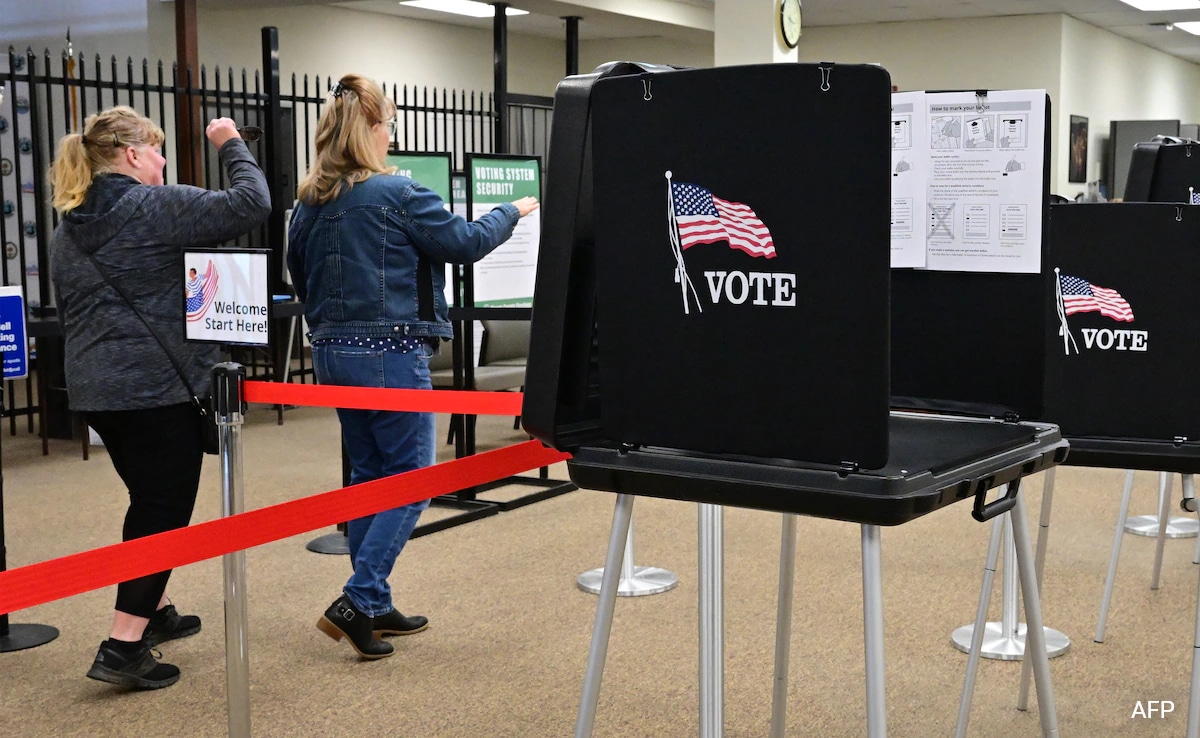Americans from 15 states and one territory vote simultaneously on “Super Tuesday,” a campaign calendar milestone expected to leave Donald Trump a hair’s breadth from securing the Republican Party’s presidential nomination.
Typically, the event — the biggest single day of voting in the country’s drawn out, state-by-state primary season — has been a make-or-break moment for candidates as the race narrows.
On the Republican side, more than a third of the delegates who will be assigned to the party’s national nominating convention in July are up for grabs on March 5.
But Trump, despite his legal woes, has swept all early state primaries and Super Tuesday is seen as the last real chance for challenger Nikki Haley to upend the former president’s march towards becoming the party’s flagbearer once again.
There is even less high-stakes drama on the Democratic front, as incumbent President Joe Biden is widely expected to be renominated for the job by his party — and likely setting up a rematch with Trump.
Here are key elements to watch for on Super Tuesday:
Millions casting ballots
Tens of millions of Americans are eligible to vote in primaries and caucuses Tuesday, with contests to be held from Maine in the northeast to California on the West Coast, as well as the remote Pacific territory of American Samoa.
Primaries or caucuses are also scheduled in Alabama, Alaska, Arkansas, Colorado, Massachusetts, Minnesota, North Carolina, Oklahoma, Tennessee, Texas, Utah, Vermont and Virginia.
Alaska’s vote will only cover the Republican primary, with the state’s Democrats voting in April.
Republicans already held their contest in Iowa earlier this year, but on Tuesday Democrats will announce the winner of their mail-in vote in that state.
Predictable outcome?
In years past, success on Super Tuesday has required a tremendous ground game, top-notch fundraising and serious momentum.
The contest has previously showcased the nation’s social and economic diversity, providing an opportunity for candidates to demonstrate their ability — or not — to draw from a broad swath of voters from different backgrounds and across different regions.
But Biden has been running without any serious challengers — typical for incumbent presidents.
And Trump, meanwhile, has steamrolled past his early Republican challengers, with only Haley, his former UN ambassador, left standing.
At stake Tuesday on the Republican side are 874 delegates — more than a third of the 2,429 delegates who will officially vote for candidates at the party’s July nominating convention, offering Trump a chance to all but sew up his runaway lead, barring a major surprise.
With Trump claiming major support among Republicans, especially in the largest states California and Texas, his campaign predicts he will win at least 773 delegates on Super Tuesday and surpass the magic number needed to secure the nomination about two weeks later.
Haley stays in race
Until she posted a symbolic win Sunday night in the Washington DC primary, Haley, a former South Carolina governor, had not won a single contest. But she did clinch 40 percent of the vote in New Hampshire and South Carolina — a sign, she argues, that the party remains divided over Trump. Haley maintains she would fare better than her rival in a general election matchup against Biden.
She has previously pledged to stay in the race through Super Tuesday — though another slate of losses could doom her campaign.
Haley has argued that a majority of voters are opposed to a rematch between “chaos” candidate Trump and Biden — two aging men aged 77 and 81 respectively — who she says are past their prime.
But analysts see Haley deciding to remain in the hunt largely in the event Trump gets laid low by his legal woes or other circumstances such as ill health.













